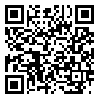Volume 11, Issue 44 (3-2018)
Research on Addiction 2018, 11(44): 59-74 |
Back to browse issues page
Download citation:
BibTeX | RIS | EndNote | Medlars | ProCite | Reference Manager | RefWorks
Send citation to:



BibTeX | RIS | EndNote | Medlars | ProCite | Reference Manager | RefWorks
Send citation to:
ansarizadeh M, javaheri M H, moiniyan D. Comparison of Group Cognitive-Behavioral Therapy, Medicinal Therapy, and Placebo in Reduceing Anxiety in Substance Abuseers. Research on Addiction 2018; 11 (44) :59-74
URL: http://etiadpajohi.ir/article-1-1576-en.html
URL: http://etiadpajohi.ir/article-1-1576-en.html
Islamic Azad University
Abstract: (8058 Views)
Objective: Drug addiction is one of the most important problems of the present age, which has become globally widespread. The purpose of this study was to compare three therapeutic methods, i.e, group cognitive-behavioral therapy, medicinal therapy, and placebo in reducing the anxiety of substance abuse patients. Method: The present study is a quasi-experimental research with pre-test/post-test and control group. The number of 40 male addicts who had obtained high scores in Beck Anxiety Inventory and were diagnosed with general anxiety disorder was selected through convenience sampling method and randomly divided into four groups, i.e. three experimental groups, including cognitive-behavioral therapy, medicinal therapy group, and placebo group and control group. The cognitive behavioral group received six 90-minute sessions of treatment. The medicnal group was placed under sertraline treatment, the placebo group also recived the placebo capsule, and the control group recived no treatment. Results: The results of covariance analysis indicated the effectiveness of group cognitive-behavioral therapy in reducing anxiety in comparison with the medicinal therapy and placebo groups. Conclusion: Based on the results of this study, which indicate the effectiveness of group cognitive-behavioral therapy in anxiety reduction, this therapy can be used as an effective method to reduce anxiety among addicts.
Type of Study: Research |
Subject:
Special
Received: 2017/10/21 | Accepted: 2018/03/17 | Published: 2018/03/17
Received: 2017/10/21 | Accepted: 2018/03/17 | Published: 2018/03/17
| Rights and permissions | |
 |
This work is licensed under a Creative Commons Attribution-NonCommercial 4.0 International License. |





